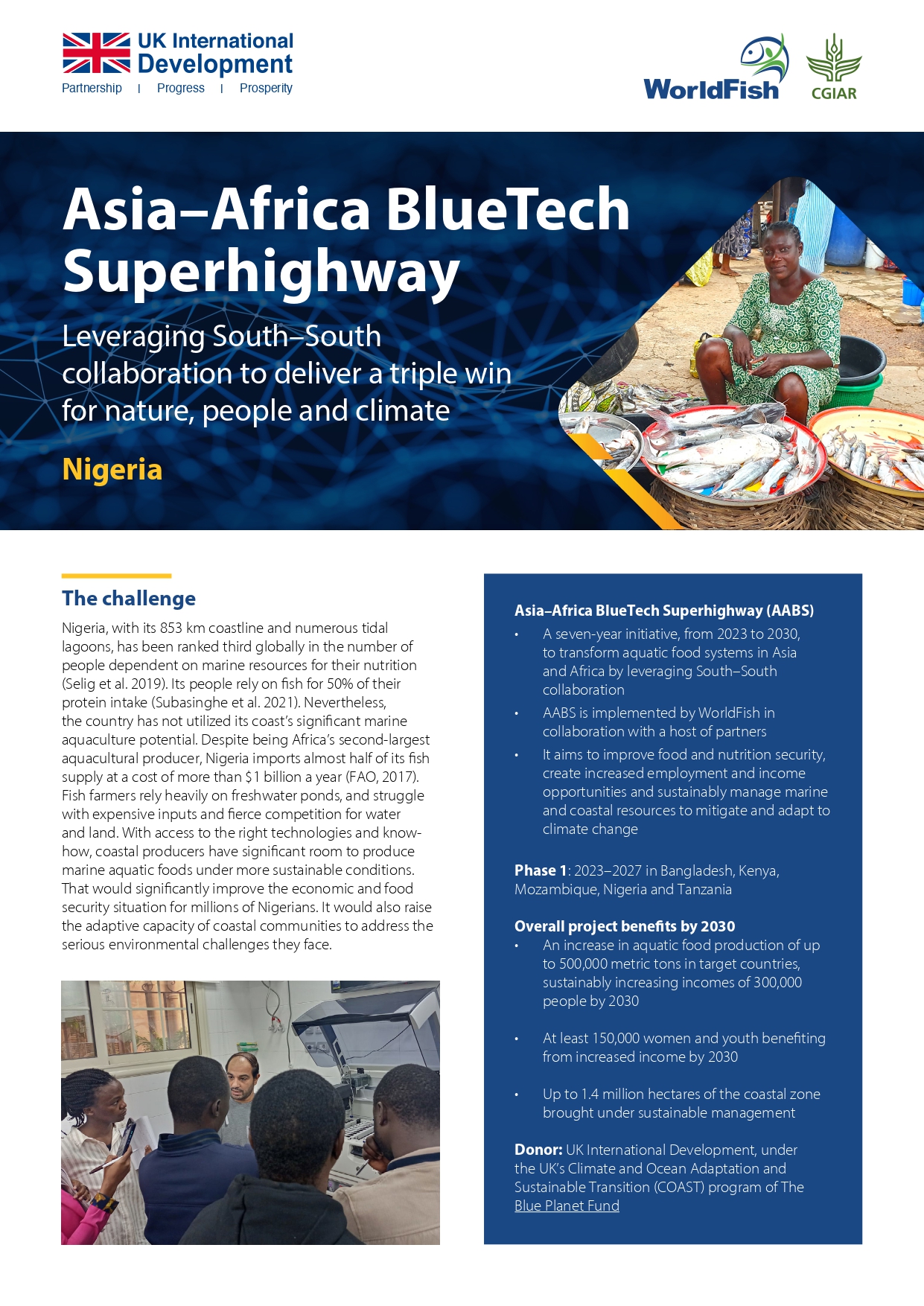The challenge: Nigeria’s untapped marine aquaculture potential
Nigeria, with its 853 km coastline and numerous tidal lagoons, has been ranked third globally in the number of people dependent on marine resources for their nutrition. Its people rely on fish for 50% of their protein intake. Nevertheless, the country has not utilized its coast’s significant marine aquaculture potential. Despite being Africa’s second-largest aquacultural producer, Nigeria imports almost half of its fish supply at a cost of more than $1 billion annually.
Fish farmers rely heavily on freshwater ponds, and struggle with expensive inputs and fierce competition for water and land. With access to the right technologies and knowhow, coastal producers have significant room to produce marine aquatic foods under more sustainable conditions. That would significantly improve the economic and food security situation for millions of Nigerians. It would also raise the adaptive capacity of coastal communities to address the serious environmental challenges they face.
The solution: Asia–Africa BlueTech Superhighway in Nigeria
Asia–Africa BlueTech Superhighway (AABS) will help Nigeria address its fisheries and aquaculture challenges by leveraging South–South collaboration to improve sustainability, resilience and prosperity in coastal communities. Through evidence-based models and partnerships, AABS will enhance the adaptive capacities of small-scale fish workers and farmers, mitigating the effects of climate change and increasing the sustainability of fish production. By focusing on Nigeria’s vulnerable coastal regions, the initiative will not only support the government’s goals but also ensure that the livelihoods of these communities are more secure and equitable.
AABS is implementing one key area of work in Nigeria:
- Integrated Multi-Trophic Aquaculture (IMTA)—adapting and implementing IMTA tailored to local context in Africa and Asia
